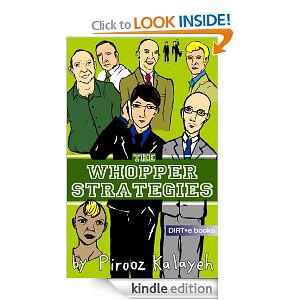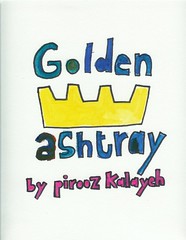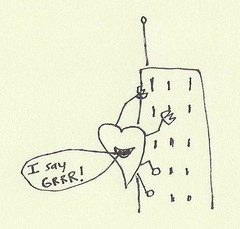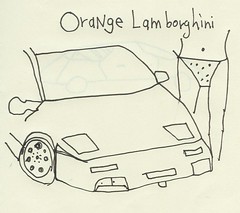 Tao Lin is a complete original. He doesn't mince words and is not fond of cliches. The consummate innovator, he follows an "ideal" where each moment can launch him into anything and everything. From oupourings of emotion to the complexities of human frailty and aggression, his latest poetry books, this emotion was a little e-book and you are a little bit happier than i am, blend craft, humor, and integrity for an original experience and exciting arrival.
Tao Lin is a complete original. He doesn't mince words and is not fond of cliches. The consummate innovator, he follows an "ideal" where each moment can launch him into anything and everything. From oupourings of emotion to the complexities of human frailty and aggression, his latest poetry books, this emotion was a little e-book and you are a little bit happier than i am, blend craft, humor, and integrity for an original experience and exciting arrival. Pirooz Kalayeh: What brought you to writing?

Tao Lin: When I was growing up my dad was friends with Ha Jin. Ha Jin came over for dinner sometimes. My dad was a physicist and Ha Jin was a writer. They didn't talk about their professions though. My mom was reading a book one day and I said, "What are you reading? Who is Ha Jin," and she pointed at Ha Jin. I was twelve or something. I think that is the first thing that made me think about writing.
PK: Did Ha Jin say anything to you?
Tao Lin: He didn't. He didn't say "Hi" or "Bye" or anything like that. If he saw me I just walked away quickly. I only remember one time I was walking through the kitchen and my dad wasn't in the room. Ha Jin was sitting at the dinner table. There was a giant vacuum cleaner and to get between that and the wall I turned my body. Ha Jin said, "Do you know that you walk sideways?" I said, "No." Ha Jin said, "You walk sideways like a crab." I said, "Oh," and walked away quickly.
PK: That's funny. I can also see it in one of your poems. The 'vacuum cleaner' disappears; a light goes on an off; and you use Picasso's head to cartwheel across two taxi cabs. That's what I love about your poems - the unexpected. It makes you drop what has happened before, but because you often repeat a phrase as a motif, it keeps the reader keyed into the multiplicity of connections you're making. It's almost like Gollum gone wild with multiple personality disorder, but there's you underneath the CGI of it all, pulling various gears and switches. How do you arrange this orchestra, Maestro? What goes into a Tao Lin original?
Tao Lin: I'm glad I have the power of multiplicity of connections. Gollum Gone Wild sounds like a good porn venture but ultimately redemptive. That sentence I just typed is good I think. I like it. I think I am different in each moment. In each moment I have an "Ideal," which is the poem that I would want to read most. So in each moment that is the poem I want to write. That is the most accurate answer I can give right now I think.
Ha Jin said in a lecture once that his favorite novel was The Human War by a writer named Main Ho. When he said that I felt really bad. I think a video series called "Main Ho Gone Wild" would be really good. Have you read any Ha Jin?
PK: No, I haven't. It's first sentences for me all the way. If I'm pulled in, then I will more than likely read the book. Right now I'm reading Lolita again. I'm taking it slow like Charlie eating his chocolate bar. I don't want to go too fast, but I do have Huck Finn on the floor, and a book by the great Tao Lin arriving any day. How about you? Are you devouring anything nutritious lately?
Tao Lin: I devoured organic pumpkin seeds, organic soy milk, organic frozen blueberries, organic bananas, an organic avocado with organic green onions and organic soy sauce, and organic almonds today and a soup. I think artists that are "devoted" to their art should focus on their own bodies. So they can live longer, have higher brain functioning, less physical distractions in the form of illness, disease, fatigue, cramps, pains, etc., and be able to focus better on their art. What do you think?
PK: I stay out of other people's business. It's healthier for me this way. I get to be in touch with me. That's a nice thing. Sometimes I climb the mountains or go out with friends. Sometimes I just stay at home and watch Battlestar Gallactica. I sit. I stand. I lie down. One day I will die. Now I'm going to watch Leonardo Dicaprio in Blood Diamond. He's a good actor. I like watching him convey his passion. He brings integrity to his roles. I like that. I also like finding that in people. It's nice when you get that from strangers or your very best friend in Seattle. I like people. They make me smile. I also like how your poems make me smile. a poem written by a bear made me laugh. i'll write another poem instead of looking for a job made me smile again. I liked how you changed the phrases to launch you into other emotions. The mix of humor, insecurity, desperation, optimism, and playful innocence commingled together creates such real, living beings out of your poems. Can you tell me what inspired this blend of emotion and language for you?
 Tao Lin: I like people also. I also hate people with an intense but ultimately redemptive passion of ten thousand hamster friends. I hope you understand what I mean. Ha Jin wouldn't. I've enjoyed this interview so far. I like talking about Ha Jin.
Tao Lin: I like people also. I also hate people with an intense but ultimately redemptive passion of ten thousand hamster friends. I hope you understand what I mean. Ha Jin wouldn't. I've enjoyed this interview so far. I like talking about Ha Jin.I think my blend of emotion and language was inspired by Ha Jin. One of my favorite writers is Ha Jin. I've read his novel War Trash almost one and a half times. It's really nice. I mean it looks nice. It has a good cover.
Have you watched any Werner Herzog movies?
PK: I saw Aguirre, Wrath of God back in 1996. I remember arrows. That's it. I also remember the friends who were with me. They had pretty strong reactions. One guy said he loved it. My girlfriend (at the time) hated it. I picked up a guitar.
I also saw Grizzly Man.
Is that where "the ideal" for "poem written by a bear" came from?
Tao Lin: I had not seen any Werner Herzog when I wrote the bear poem. I don't think real bears are that depressed or cry when eating salmon, due to animal rights, of taking away the right of the salmon to live.
I saw The Land of Silence and Darkness by Werner Herzog a few days ago. It is about people who are deaf and blind. Herzog is a very good role model if you want to be a person who isn't dramatic. He chooses very undramatic people in very dramatic situations for his documentaries. I read Herzog's book of interviews. He doesn't complain and isn't dramatic. He said that what he wanted in his life was to find meaning, not to be happy. I want to read his book of interviews again.
I also saw Little Dieter Needs to Fly by Herzog. It was about a man who was very undramatic but who experienced a very dramatic situation. Herzog does documentaries on people who are focused on a goal and do not, really, have feelings, but only are tools to get at a goal. When suffering from severe loneliness or "terrible" circumstances these people do not become stagnant, depressed, or whiny and do not complain, brag, or anything like that but just focus on a goal.
People who are depressed should focus outward, on other people or on anything. Even if the depressed person is a nihilist, or something, and doesn't care about other people, he or she should still focus outward, if he or she wants not to be depressed anymore, because focusing outward is a good way to fight depression.
PK: I read your answer 34 times today. Then I thought about what I could say to you. I wanted to let you know about the monk I saw last night who said that “people need to concentrate on others," but who would probably say, “wanting anything is not going to get you happy.” This answer frustrated me. I had to teach a class. I felt fake, and my mind said, “You need to prepare for this class.” Then this feeling went away. I didn’t reach into my pockets to see what was inside them. I just said, “Okay, I can do that.” Then I went upstairs. I read your answer 5 more times. Then I decided I would prepare my classes. I went back downstairs. I printed handouts. I felt unprepared, then prepared, and then unprepared again. I went upstairs. I read “you are a little bit happier than i am.” I felt prepared. I thought about Byron Katie. She liked the question: “How do you know you don’t need what you want?” I liked her answer. “You don’t have it,” I said to myself. Then I felt happy, I looked at the roses I bought. They were blooming. I only watered them once. They looked nice. Then I thought about how your book reminded me of a diary, but that it was more than a diary, and that depression is believing a thought is real, and how you probably don’t believe every thought you have, but that it is real to have thoughts, so your book is very real. I liked your book very much. It is very different from the poems in “this emotion was a little e-book.” What was your ideal with “you are a little bit...?”
Tao Lin: I liked reading what you typed. Thank you for reading what I typed a total of 39 times. I liked what you typed. You didn't use any clichés of language or idiomatic expressions. Each word had meaning, on its own, and the meaning was what you wanted to express; there were no received phrases. Thank you.
I wrote "you are a little bit happier than i am" before the poems on Bear Parade. When I wrote "you are a little bit happier than i am" I hadn't read much poetry. I don't think I had read any contemporary poetry except maybe some of Matthew Rohrer. I didn't think any of the thoughts about "focusing on others" that I typed in my last answer when I was writing "you are a little bit happier than i am."
I've just started thinking those kinds of things recently. I used to think it was good to be severely depressed, because severely depressed people I thought were quiet, passive, unconcerned with material possessions, sensitive, very conscious of the effects of their behavior on others, and structured their lives so as not to interfere with anyone else's, and didn't mislead others. But I think those qualities are all independent of "severe depression." A happy person can have all those things I just listed.
I think my ideal was different with each poem in "you are a little bit happier than i am." Maybe for most of them I wanted to have it so after reading the poem I felt better, because of feeling less significant, in the universe, but not distortedly insignificant, just more accurately significant. The .0000000000000000000000001% or whatever it is of the universe that I am.
 Tao Lin is the author of a poetry collection, YOU ARE A LITTLE BIT HAPPIER THAN I AM (Action Books), a story-collection, BED (Melville House, May 2007), and a novel, EEEEE EEE EEEE (Melville House, May 2007). He also has two small books on BEAR PARADE. His blog is READER OF DEPRESSING BOOKS. He lives in New York City.
Tao Lin is the author of a poetry collection, YOU ARE A LITTLE BIT HAPPIER THAN I AM (Action Books), a story-collection, BED (Melville House, May 2007), and a novel, EEEEE EEE EEEE (Melville House, May 2007). He also has two small books on BEAR PARADE. His blog is READER OF DEPRESSING BOOKS. He lives in New York City.












2 comments:
good interview. i would like to see more pictures of tao lin in supermarkets.
Yes, that is a great picture. When I saw it, I just bust out laughing. I also love how the file was saved as - "Taco Tao."
Post a Comment